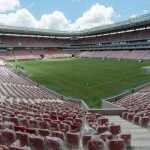Dengue Epidemic Threatens 2014 World Cup as Protests Continue
As the 2014 World Cup draws near, Brazil faces another potential crisis, this time in the form of a dengue fever outbreak that could disrupt the tournament. According to researchers, three host cities—Natal, Fortaleza, and Recife—are at significant risk of experiencing a dengue epidemic during the World Cup period.
The French sports daily L’Equipe further reports that other cities such as Rio de Janeiro, Belo Horizonte, Salvador, and Manaus are also facing above-average risks. The outbreak could pose a serious threat to both players and foreign supporters, who could unknowingly spread the virus when they return to their home countries after the tournament.
Dengue fever is a viral disease transmitted by mosquitoes, causing symptoms such as fever, headaches, muscle and joint pain, fatigue, nausea, vomiting, and skin rashes. In some cases, the disease can lead to more severe complications, and an average of 5% of infected individuals may develop conditions that can be fatal. The virus affected approximately 2 million people in Brazil in 2012 alone.
With no vaccine or specific treatment available, the threat of a dengue epidemic adds another layer of uncertainty to an already complex World Cup, which is also facing protests and political unrest. Organizers will be working to address the issue and minimize the risks to the participants and fans attending the tournament.












